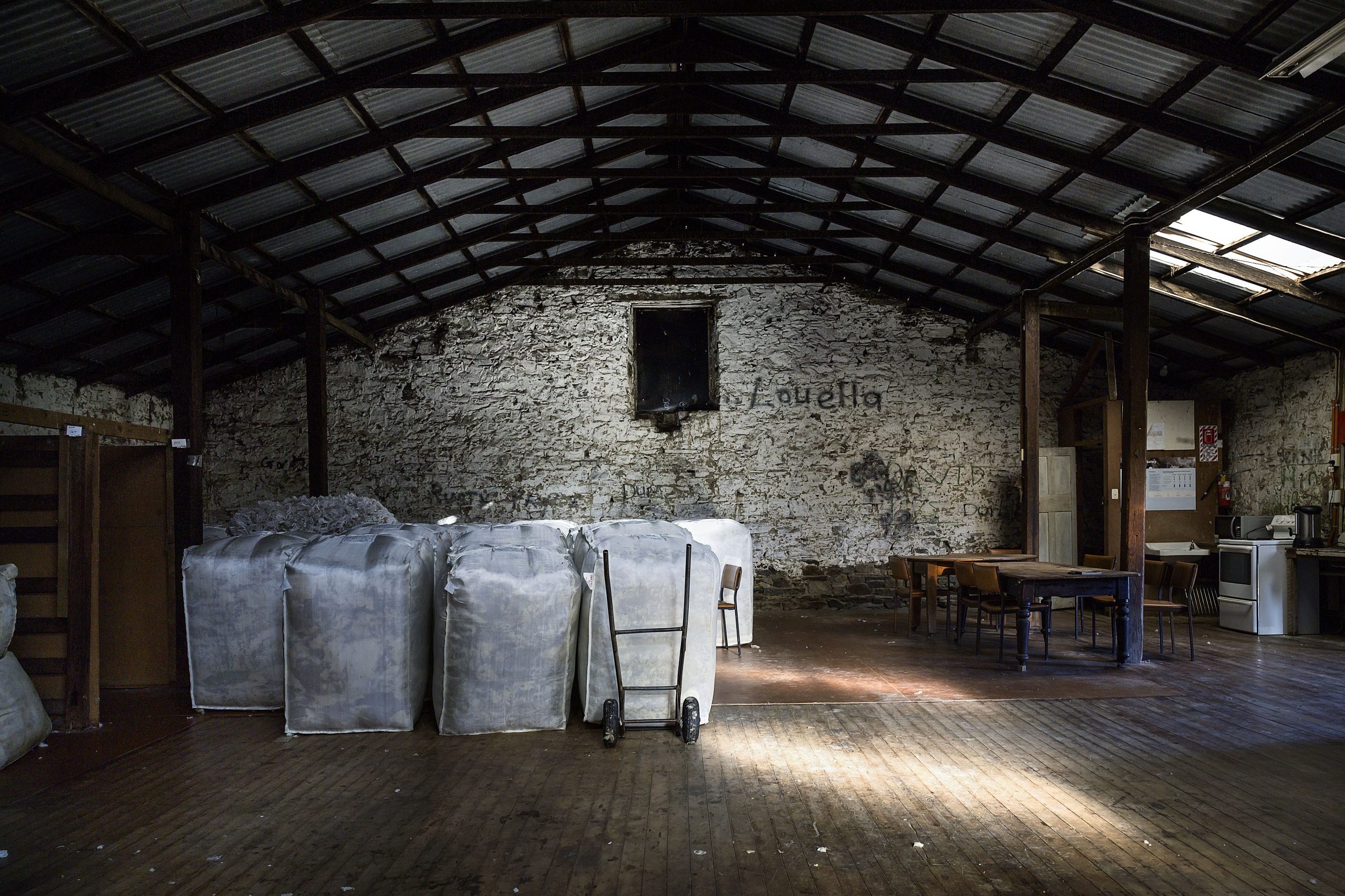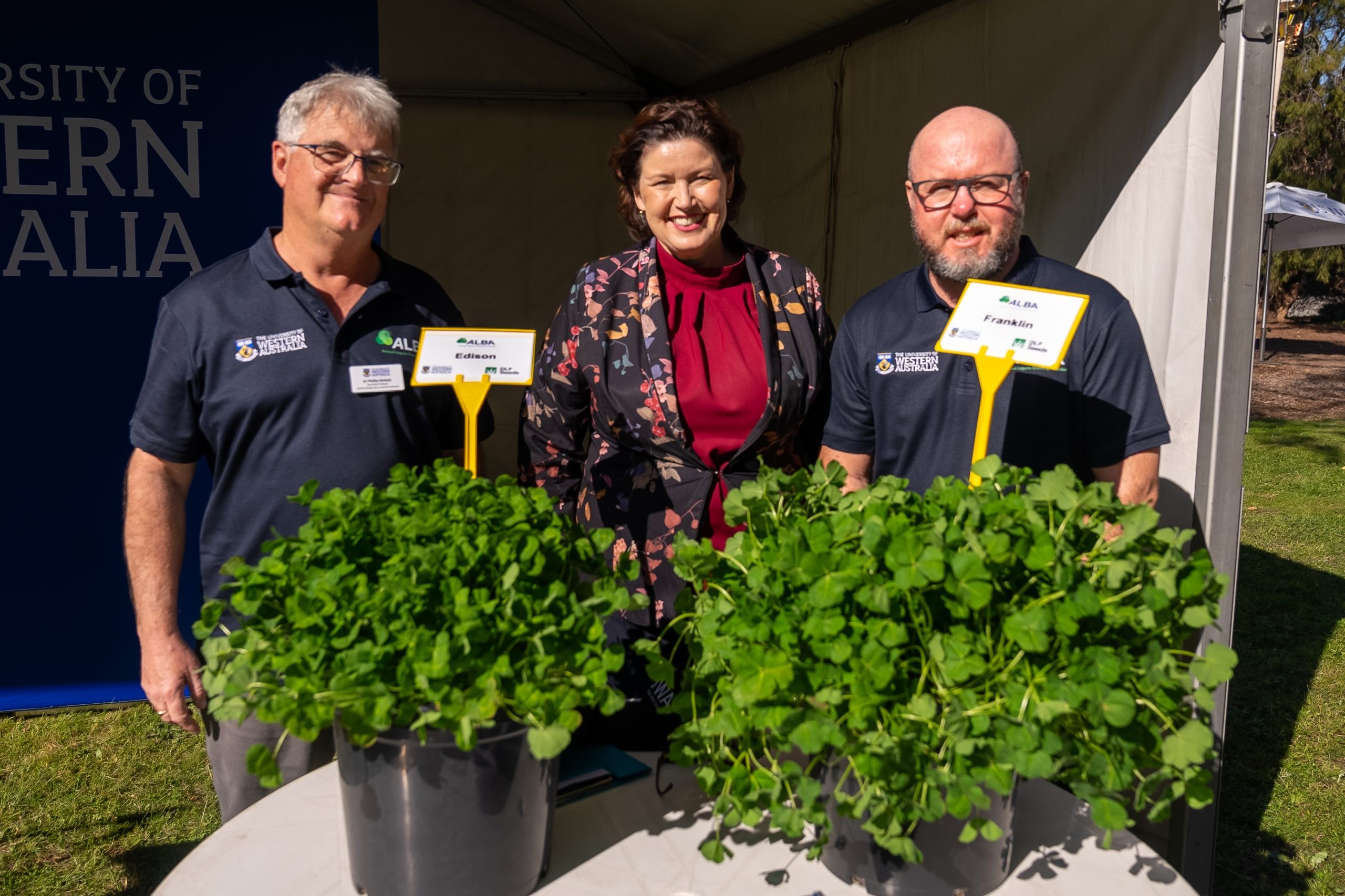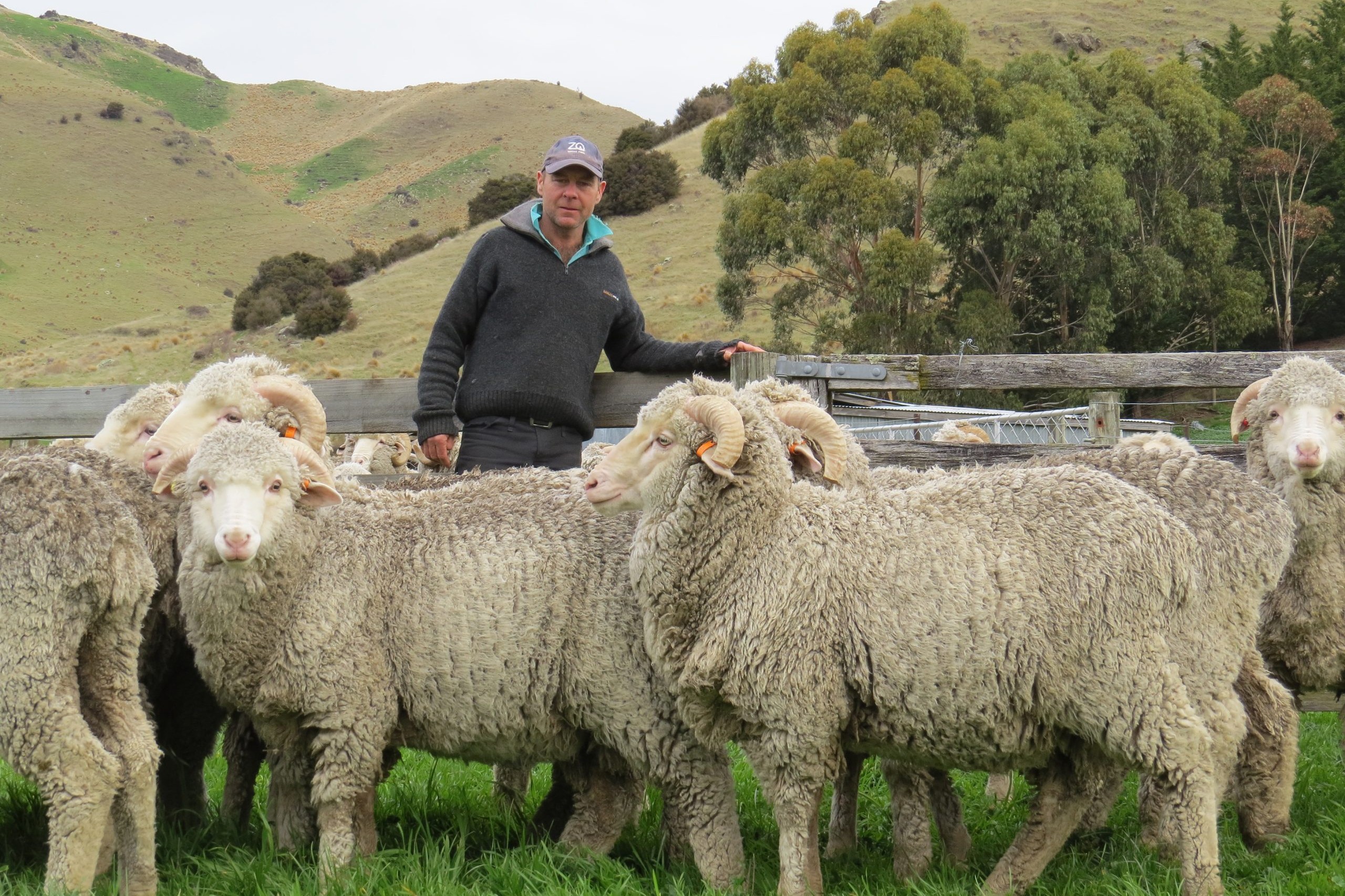From New Zealand to Norway – the partnership taking NZ merino to the world
Chris Nicolson recalls the days before signing with Devold, when their wool was a traditional style, and the entire clip went to auction. The original merino had its challenges in the North Canterbury climate and the decision was made to move away from that style of sheep and into an easier care, higher micron sheep with a bit more grunt. Words and photos PGG Wrightson Wool.
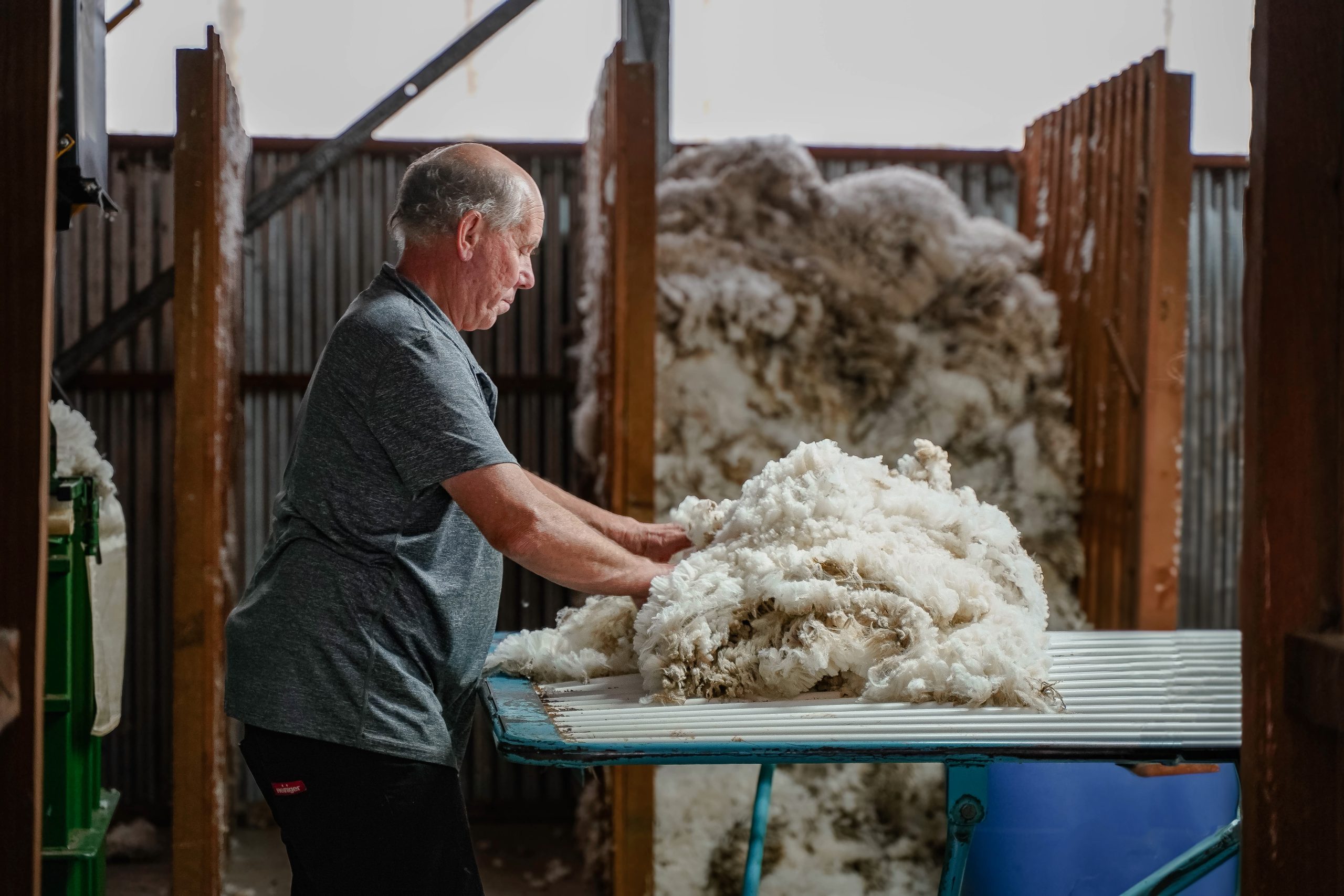
Along Leslie Hills Road in North Canterbury is Barcaldine Farm (2,600 hectares) located between Waiau and Hanmer running a 70 percent sheep to 30 percent cattle ratio (7,500 stock units). Barcaldine has been part of the Roxburgh family since 1945 run by by Hamish Roxburgh, shepherd Deegan Devree and Chris Nicolson.
“Emily and I are the third generation to take the reins at Barcaldine along with our children Archer (5), Elsie (4), and Sylvie (6 months). We’re grateful to Hamish and Grace for the opportunity to be part of this incredible place,” expresses Chris. Most of the farm is hard hill well suited to merinos and a switch to a type of merino that was a slightly higher micron they were seeking more security with our clip.
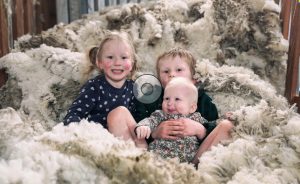
Thanks to PGW Wool, Barcaldine has locked in a sought-after partnership with Devold, which offers fixed-price contracts for their wool, providing price certainty in an often uncertain market. PGW Wool rep, Peter McCusker suggested Devold and arranged for Craig “Smithy” Smith from Devold NZ to explain the benefits to the Barcaldine team. They ended up signing most of their fleece to the merino clothing brand, and as the saying goes, the rest is history.
“The farm has worked with PGW for generations, and the relationship has been great. Peter does a fantastic job. He’s a great all-around sheep man, and his knowledge is invaluable,” says Chris.
Chris says it was a sound financial move, but we’ve also been very impressed by Devold’s business model. It’s exciting to be part of the frequent gatherings, where growers can meet each other,
hear from the Norway team, and learn about markets and innovations they’re working on.
“The feedback we get is great, and the lines of communication are always open, which we really appreciate. Going through the wool store and hearing what others are doing also helps us see what we could accomplish. The whole system is so aligned and in-house; we feel very fortunate to be part of it. We’re excited to see what the future holds!.” – Chris Nicolson, Barcaldine, North Canterbury
“The feedback we get is great, and the lines of communication are always open, which we really appreciate. Going through the wool store and hearing what others are doing also helps us see what we could accomplish. The whole system is so aligned and in-house; we feel very fortunate to be part of it. We’re excited to see what the future holds!”
Founded 173 years ago by Ole Andreas Devold, who made beanies, scarves, and gloves for Norwegian fishermen, Devold is now a global brand specialising in outdoor active merino clothing. They differ from other manufacturers by being fully vertical — they buy wool on a forward contract basis, directly from growers.
With typical wool commodities, there are usually intermediaries between the farmer and the brand. But because Devold aims for the highest wool quality, they offer fixed prices to growers, so farmers know what they’ll be paid, and Devold knows what they’re buying and their values align with top-quality merino wool from New Zealand.
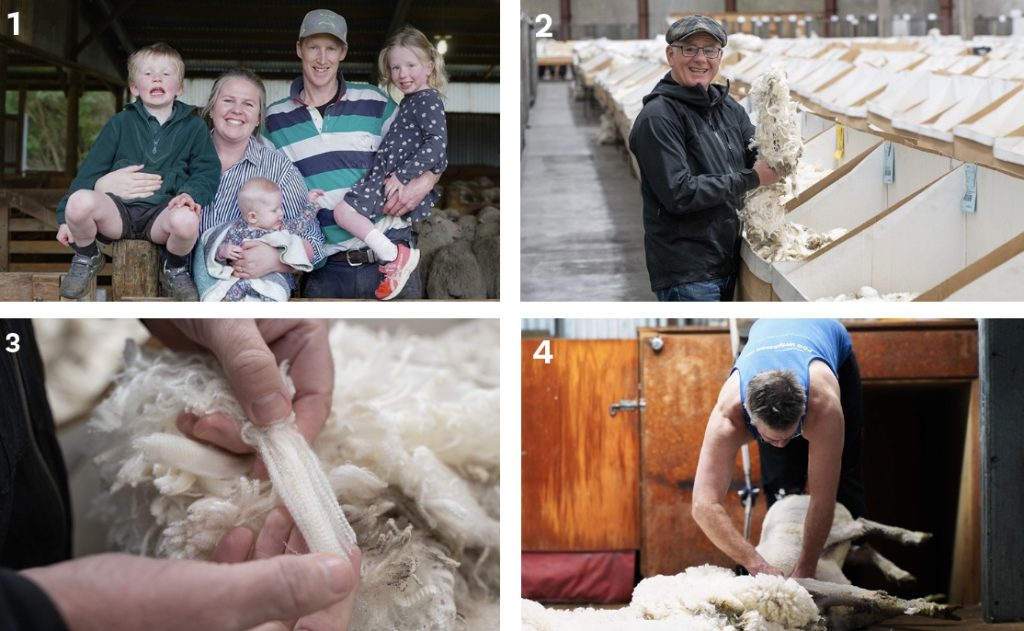
Devold NZ’s General Manager, Smithy, says the reason is that the wool in New Zealand is really consistent.
“Devold’s ethos is to strive for quality in everything we do and make, so we have to buy the best wool we can. Wool is a bit like wine in that it’s affected by climate and feed. While New Zealand wool can fluctuate, it’s not as dramatic as Australia, where the weather swings from one extreme to the other,” says Smithy.
“We do this because quality is central to everything we do. If we don’t know the wool’s quality, we can’t make good garments. We also pay a premium above the commodity price to meet our specifications,” says Smithy.
This practice has had clear benefits. When Devold was buying processed wool, the rejection rate was about 15 percent out of every 100 garments, either by consumers or in production. Now that they buy directly from growers, the rejection rate is under 0.5 percent.
Smithy believes that the wool industry is often too disconnected from growers. “When it comes to merino, 80 to 85 percent is sold through auctions, leaving the grower with no idea where it goes, and the brand not knowing where their wool came from,” he explains. “With our partnership with PGW Wool and our growers, we know exactly where our wool is shorn and can trace it from the farm to the wool store, all the way to Lithuania, where the clothing is made.”
When growers join the Devold family, they know exactly where their wool goes. Most have even seen the end result with their own eyes. “We’ve taken two tours to Europe so our farmers can follow their wool through the pipeline, so to speak. They saw production at the factory and visited Devold’s head office in Norway, meeting our entire team. Seeing the finished garments with their label on it was an emotional experience, and many shed tears of pride,” says Smithy.
“Traditionally, once you shear a sheep, the wool goes on a truck, and you never know where it ends up. But not with us. Our ‘sheep to shop’ program is 100% traceable, and we love sharing our growers’ stories with those who buy our merino garments.”
With such a strong bond between grower and brand, Devold is selective about who joins their partnership. As Smithy explains, they carefully vet new growers, consulting everyone involved. Working alongside PGW Wool has also contributed to this successful venture. “We trust Peter McCusker, Dave Burridge, and the growers they represent. Their knowledge not only adds value to farmers like Chris but ultimately extends our brand,” says Smithy. “The quality wool we seek drives them to deliver.”

